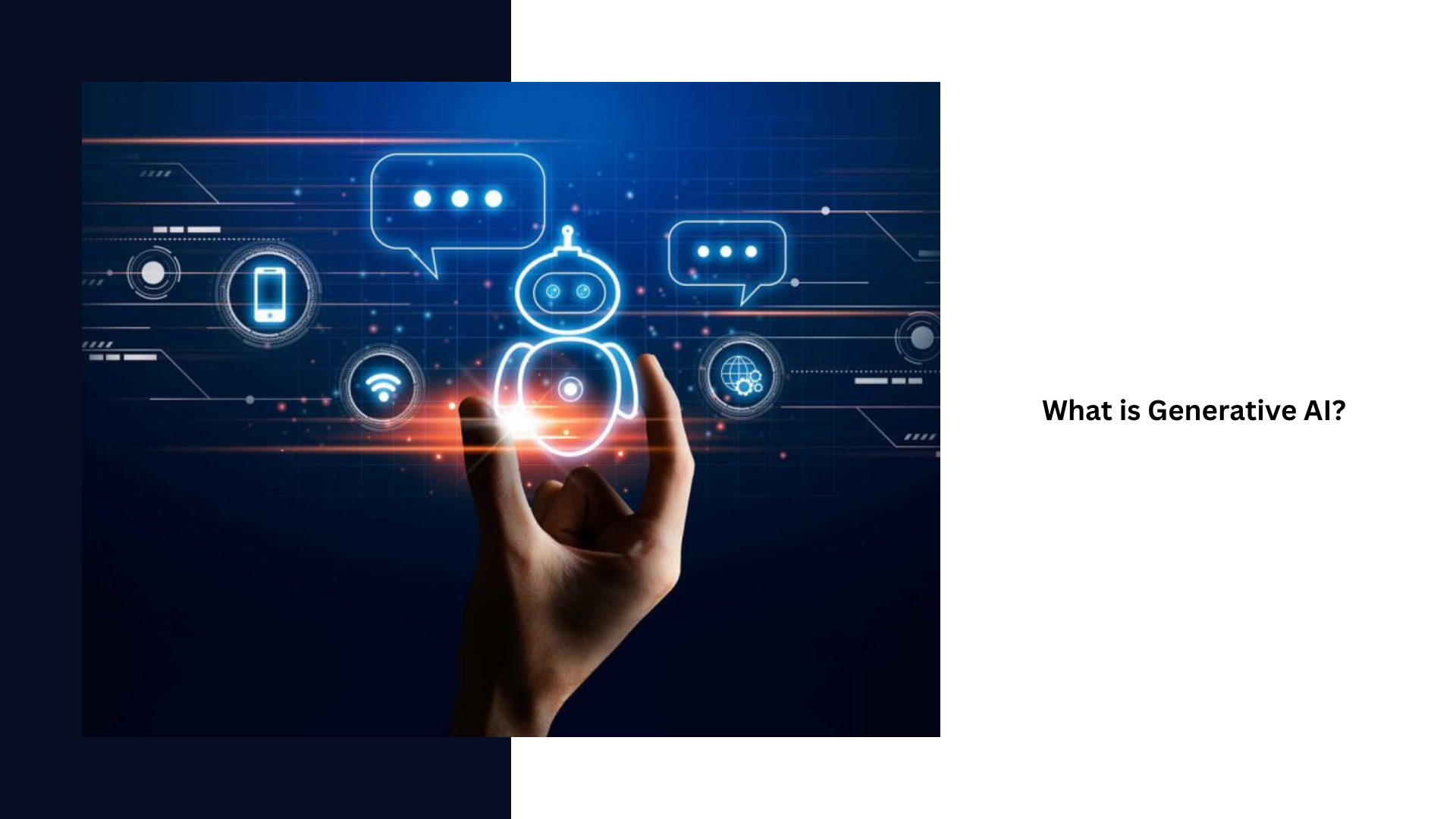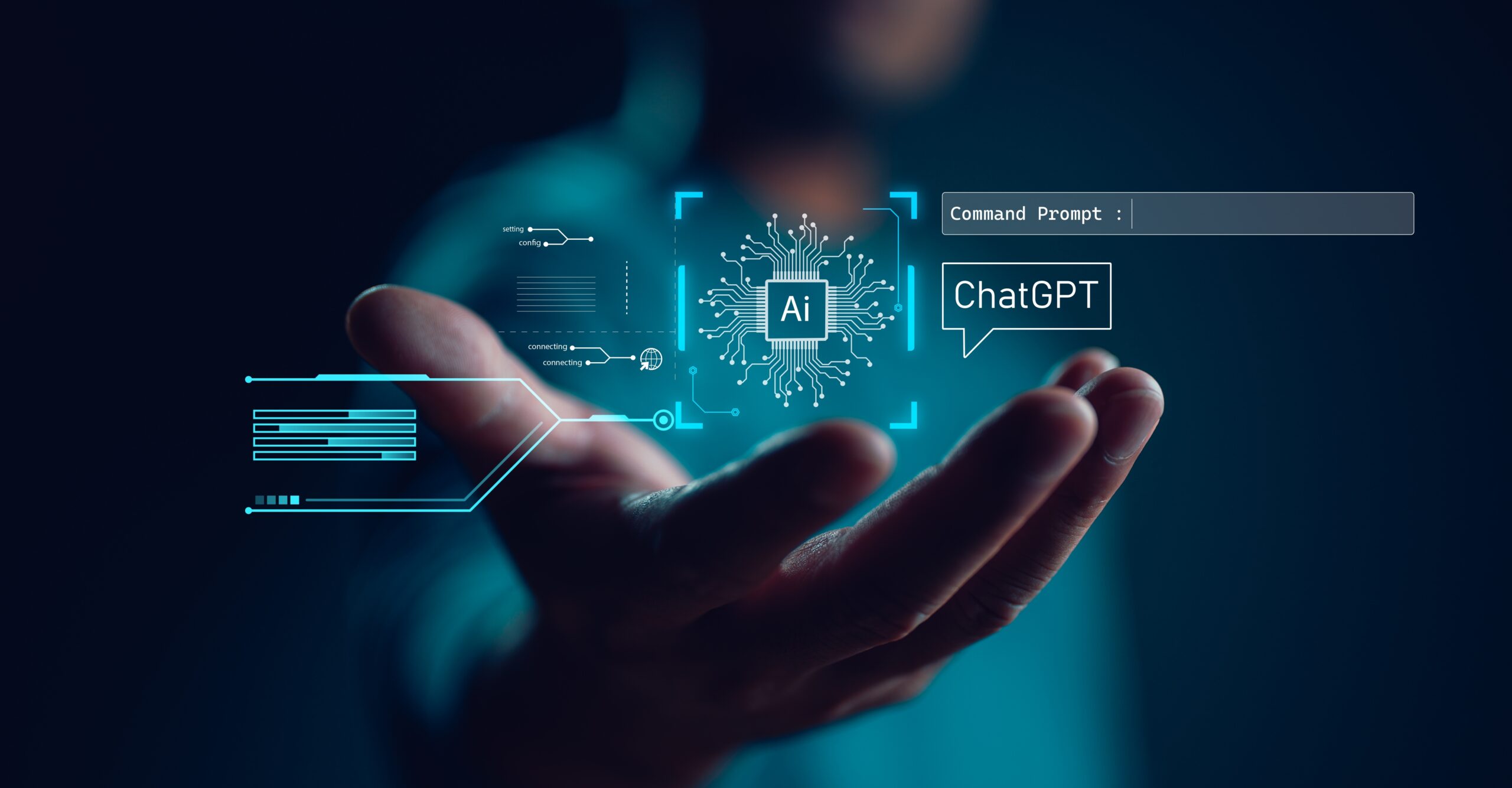We hear a lot about Artificial Intelligence (AI) these days, especially how it might change the way we work. But how exactly will Generative AI and Future of Work affect jobs? Will it take away opportunities, or will it create new ones? Let’s explore this and understand both the challenges and possibilities that come with the rise of generative AI.

What is Generative AI?
As industries become more competitive, the way we work is changing quickly. Have you ever thought about how much easier tasks could be with the right tools? This is where Generative AI and Future of Work come in! This technology isn’t just a buzzword; it’s a game-changer that can reshape the future of work in America. With automation, businesses can use generative AI to handle routine tasks, allowing employees to focus on more meaningful work. McKinsey even highlights how these AI systems can drive productivity gains and improve our overall work experience.
But what does this mean for jobs? Well, Generative AI and Future of Work have the potential to create new roles while enhancing existing ones. Imagine a workplace where people are always learning and adapting, thanks to reskilling efforts supported by AI. The impact of generative AI is not just about replacing jobs; it’s about improving our abilities in ways we haven’t seen before. In 2022 and 2023, we’ve seen how artificial intelligence can transform work activities and make production work more efficient. So, how do we prepare for this shift and ensure we’re ready for the future job landscape? Let’s explore!
Which Jobs Are Most Likely to Be Disrupted or Transformed by Generative AI?
Many of us wonder which jobs could be disrupted by AI. Will it only affect certain industries, or will it reach all fields?
Generative AI has the potential to change many jobs, including those that involve creativity. Here’s what Mr. Travis Taborek, Owner of Travis Content Marketing, thinks about this:
“I think the nature of many jobs will change. In the same way that many journalists had to pivot to content and social media marketing to stay relevant in the changing digital landscape, many people in my field will have to embrace gen AI or else get left behind.”
This shows that even in creative fields like content marketing, AI is already playing a huge role. It’s not just manual jobs at risk, creative roles such as writing, designing, and marketing could also be reshaped by AI technology.
What New Job Opportunities Might Emerge as a Result of Generative AI Technologies?
While some jobs might change, generative AI will also bring new job opportunities. We might see entirely new roles emerge as companies look for people who can manage, improve, and guide AI tools.
Mr. Travis Taborek explains this further:
“The best thing you can do to prepare for the changes AI will bring is to stay calm, keep your cool, and start using AI every day. There are several prompt engineering courses on Coursera. That’s a good place to start.”
This suggests that new job roles such as “prompt engineers” might become more common as AI technologies evolve. Other potential opportunities could include AI trainers, AI ethicists, and data analysts who help manage and improve AI systems.
How Can We Prepare the Workforce for the Changes Brought About by AI, Through Education and Upskilling?
With Generative AI and Future of Work changing how jobs work, preparing the workforce is very important. It’s not enough to just adopt AI technologies; we also need to make sure that people are ready to work alongside them in the future of work. This shows how important it is to upskill and learn how to work with AI to improve productivity. Courses that focus on generative AI technologies, like prompt engineering, can help individuals stay relevant in the changing labor market and adapt to new occupations. As we move into 2024, educators and companies must focus on providing AI-related training to equip the workforce with new skills and promote continuous learning to prepare for a future where generative AI automates tasks in different sectors. Working together with tools like ChatGPT will be essential for success.
Will the Benefits of AI Be Distributed Equitably Across Society, or Will It Exacerbate Existing Inequalities?
One big concern surrounding generative AI is whether its benefits will be shared fairly. Will AI help create more opportunities for everyone, or will it increase the gap between those who have access to technology and those who don’t?
Mr. Travis Taborek shares his thoughts on this:
“AI can be a force for good, but I think there will be an adjustment period where it will deepen existing inequalities before it is distributed more equally. AI and machine learning have already been around for decades. What makes gen AI special is that it makes the technology accessible to anyone.”
While Generative AI and Future of Work have the potential to bring positive change, there might be a period of imbalance before the benefits are more widely available. Those with the resources to access and understand AI tools may have an advantage initially. Therefore, it’s important to push for policies and educational efforts that ensure AI is accessible to everyone.
Nell VH, Director & CoFounder of TheSiteSale, also has an insightful view on the impact of generative AI:
“Many think only manual jobs will be disrupted by generative AI, but creative roles aren’t safe either. Content creators and designers may find their tasks transformed. However, new roles like AI ethicists and prompt engineers will emerge. To prepare the workforce, we need to prioritize education in AI literacy and continuous upskilling. The challenge? If we aren’t careful, AI could deepen existing inequalities instead of leveling the playing field.”
Nell’s perspective highlights the need for widespread AI education and skill development. While AI can transform jobs across industries, it’s crucial that we ensure these changes don’t leave anyone behind.
Generative AI: A Partner or a Replacement in Automation?
So, the big question on everyone’s mind is whether Generative AI and Future of Work are going to be a helpful partner or just a replacement for our jobs. With the rise of remote work and virtual offices, we’ve seen how AI tools can really change the way we do our jobs. It’s not just about automating tasks; it’s about enhancing our entire work experience. Imagine having an assistant that helps you brainstorm ideas or organizes your tasks efficiently. That’s the potential of generative AI. But let’s not forget, this transformation comes with its own challenges, especially for those in lower-wage jobs or roles that require fewer cognitive skills.
As we dive deeper into the impact on jobs, we need to recognize that workers will need to adapt to this new reality. Many are already exposed to Generative AI and Future of Work, and this technology is accelerated by generative AI advancements that make our workflows smoother. Whether it’s through automating simple tasks or providing insights for complex decisions, the key is how we choose to leverage these tools. Here are a few use cases that highlight the benefits of generative AI:
- Enhancing remote work by simplifying communication and collaboration.
- Supporting creative processes by generating ideas through natural language.
- Streamlining workflows to reduce time spent on repetitive tasks.
- Helping employees gain new jobs and skills that align with modern demands.
- Making it easier to tackle tasks that require higher-level thinking and creativity.
So, whether generative AI becomes a partner or a replacement really depends on how we adapt. The nature of work is changing, and it’s time to embrace the future!
Generative AI and Remote Work Opportunities
Generative AI and Future of Work are changing the way we think about remote work opportunities. As we look at the future of work, it’s clear that AI might help us with repetitive tasks that often waste our time. This change can disrupt traditional roles, making the rise of generative AI very important for our future success. Gurneet Singh Dandona mentions that today, workers are 14 times more likely to find higher-wage jobs because of the skills that AI adoption encourages.
Embracing Change
The pace of change is fast, and companies need to adapt. They must use strategic workforce planning to prepare for what’s coming. In the midpoint adoption scenario, we could see about 12 million occupational transitions, highlighting the need for reskilling.
Focusing on Skills
Generative AI will underscore the need for workers to proactively learn new types of jobs. This is important because 30 percent of hours spent on routine tasks could be automated. By focusing on cognitive skills, employees can stay relevant in a changing job market.
The Future Landscape
The United States will need to understand that the future of work is here. The adoption of automation technologies will reshape the job landscape, leading to both job losses and new opportunities. As we embrace generative AI and the future of work, we must be ready for the changes in the world of remote work.

Generative AI and Future of Work
As we move into the future of work, generative AI brings new opportunities and some challenges too. With this technology growing, there is a big need for digital skills among workers. Jobs that used to rely on manual skills are changing, especially for those based in New York and New Jersey. This means workers need to adapt and focus on the tasks and skills that are in demand.
Companies also have to adjust their HR strategies to keep up. Upskilling and reskilling are important to meet the skill needs of the workforce. Here are some key points:
- Skill Shift: As certain skills decline, workers should improve their digital skills to get better-paying jobs.
- Wage Changes: Middle-wage jobs may continue to decline, affecting many workers. One in four jobs could see significant changes by 2030.
- Productivity Goals: To reach the 2022 productivity levels, businesses need workers who can quickly learn new skills.
In short, while generative AI is transforming the way we work, it also offers a great chance for workers to grow and adapt in this fast-changing world. The key is to embrace this change and prepare for the exciting journey ahead!